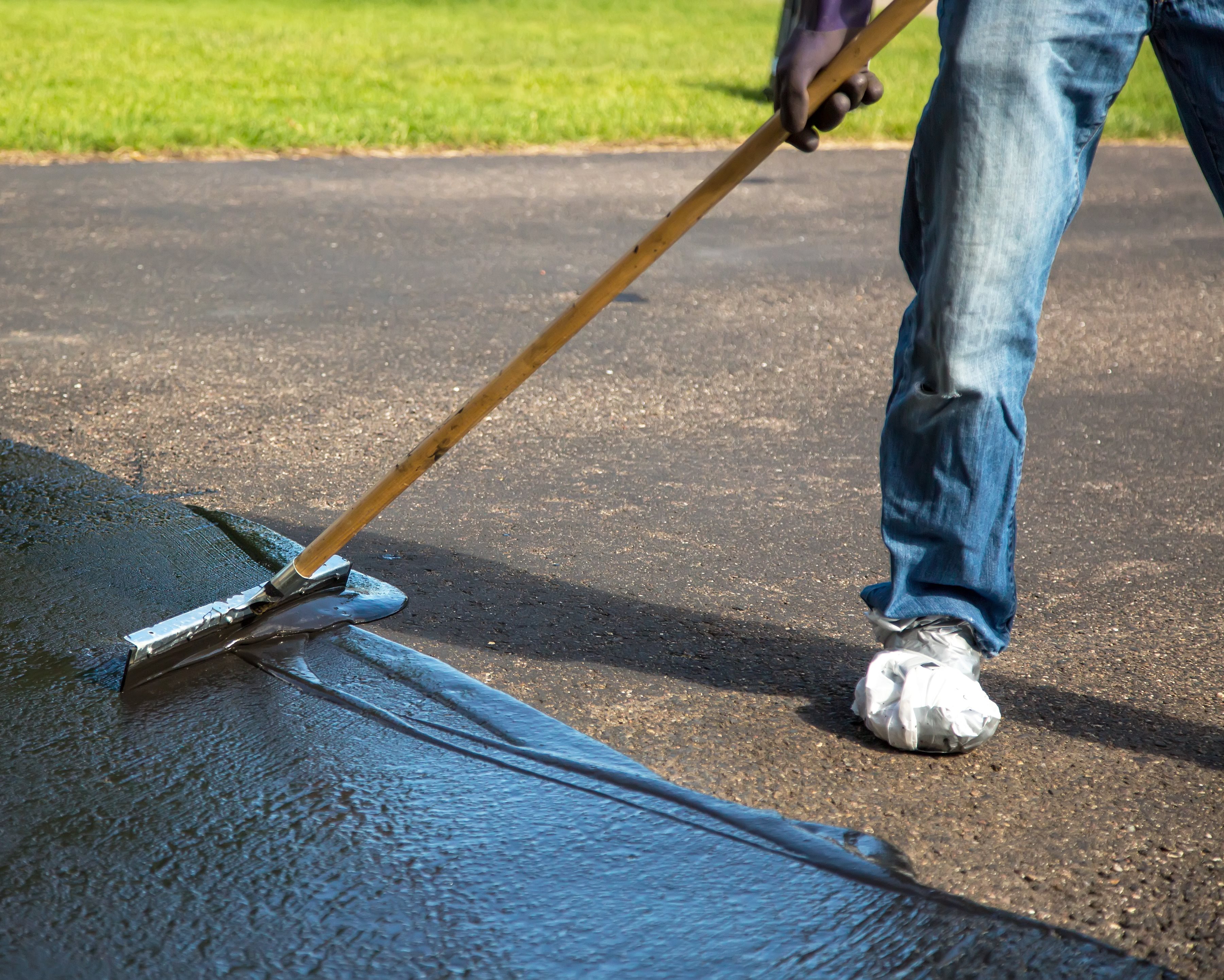
Ending the use of Tar-Based Sealants
Tar-based pavement sealants are the primary source of toxic PAH pollution in urban landscapes. Those PAHs are harmful to human health, and hurt fish and other aquatic life in our lakes and rivers. Clean Wisconsin is a leading voice on this issue, and will continue to encourage municipalities and the state to find solutions to this challenge.
What are pavement sealants?
Pavement sealants, also known as “sealcoats” or “sealers,” are the jet-black coatings homeowners and contractors apply to residential, commercial, and industrial driveways and parking lots. There are two main types of pavement sealants on the market today: tar-based sealants (also called “coal tar-based”), and asphalt-based sealants.
What’s the problem with tar-based pavement sealants?
Pavement sealants contain polycyclic aromatic hydrocarbons (PAHs), which are toxic compounds that can cause cancer and developmental problems in children. The American Medical Association and other public health groups have urged local and state governments to ban tar-based sealants due to their harmful health effects.
How are people exposed to PAHs from tar-based sealants?
PAHs accumulate in soils, household dust, and carpets when particles of tar-based sealants are blown or tracked into homes, schools, and other buildings. The particles come from those sealants being worn down over time by weather, tire abrasion, and foot traffic. The toxic sealant particles are also washed off by rain and spring meltwater, ending up in our local water bodies.

How significant is the health risk?
The coal tar pitch used in tar-based sealants is classified as a hazardous waste. Children living in homes where parking lots are coated with tar-based pavement sealants face a 14-fold increase in cancer risk compared to those living next to unsealed lots, according to researchers at Baylor University and the U.S. Geological Survey. A lifetime of exposure can lead to cancer rates 38 times higher than normal.
What are the environmental impacts of PAHs?
PAHs kill small organisms living on the bottoms of rivers and streams and can cause tumors in fish and other large aquatic animals. This could result in costly impacts on the ecological balance of aquatic environments. Even three months or more after sealants are applied, the tar-sealed pavement runoff can kill fathead minnows and water fleas, two indicator species used to assess chemical toxicity to aquatic life.
This research and information is provided from Clean Wisconsin. For more information, visit Clean Wisconsin’s website.





